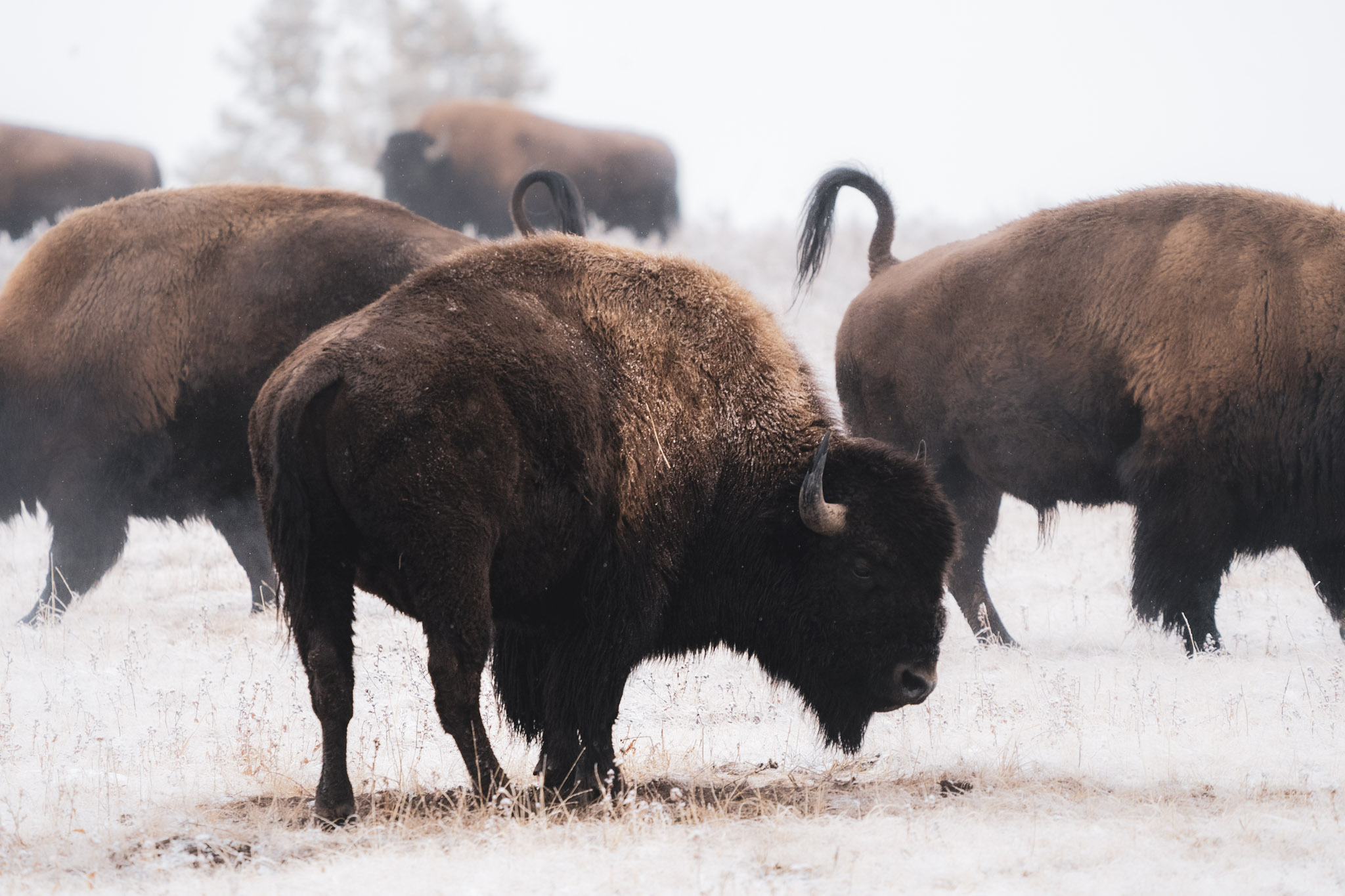
- Details
- By Jaedin Medicine Elk
If you considered the 1,250 dead bulls, pregnant females, and calves from the buffalo’s perspective, however, the conversation would have gone much differently. But none of the “managers” or tribal representatives did that.
The dominant, colonized culture has made its way into our Tribal Nations. But we can’t live as tribal people when all we think about is ourselves and our rights and not Mother Earth or the wildlife our ancestors loved and depended on.
Killing hungry, pregnant female buffalo at the Park’s border isn’t what we should be doing. We need to allow these matriarchal family groups – mainly pregnant females and grandmothers – to teach the young ones the migration corridors so more buffalo can establish themselves on the lands that are their birthright.
The buffalo know what to do; they just need our help to allow them to do it. It’s the humans who need to be managed. As buffalo culture tribal people, when we see things like Blood Creek at Beattie Gulch in the new documentary by Yellowstone Voices: A Path Forward for the American Bison, we must speak up, not participate in the massive kill.
We have to stop treating these buffalo like they are just meat animals that don’t have a right to roam free on Turtle Island. We’re treating the Buffalo Nation as the Veho (whites) want us to, controlling and destroying these buffalo to appease Montana and the livestock interests – with our help! They want us to forget our ancient relationship and obligations to the Buffalo Nation.
When first joining this issue, I expected powerful native voices who see what is going on to say something. But I came to find out the reality is, people are afraid to say anything as tribal members. We don’t want to fight our own people, but at the same time, when it’s our people helping facilitate the destruction of a wild buffalo population, what are we supposed to do? Sit by and let buffalo keep dying because Tribal people have been brainwashed to believe humans are everything and we matter the most? This ‘hunt’ isn’t the right way to reconnect with the Buffalo Nation. They’ve had our back since we made that spiritual connection. Now it’s time we had theirs.
The older I get, the more I understand why our elders tell us to learn our language and culture. When I started being with wild buffalo, things became more clear as to how our ancestors lived their ways of life, copying the Buffalo Nation that kept them going for thousands of years.
Today the Buffalo Nation is like our own Tribal nations...forgotten. Our relationship and connection to them is likewise forgotten because tribal members are killing pregnant female buffalo and preventing the next generation 0f buffalo from seeing the sun, moon, grass, blue skies, rain, and everything this beautiful Turtle Island has to offer. The Buffalo Nation is looking to tribal nations to help them, not just kill as many as we can because we have treaty rights to do so.
The laws made by men can be unmade by men and now is the time to “un-make” the “management plan” that is decimating wild Buffalo Nation and allow them to once again roam free.
Jaedin Medicine Elk is a co-founder and board president of the Montana-based Roam Free Nation. Jaedin is Northern Cheyenne, a Sundancer and Sacred Pipe Carrier from a traditional Buffalo Culture family.
Help us defend tribal sovereignty.
At Native News Online, our mission is rooted in telling the stories that strengthen sovereignty and uplift Indigenous voices — not just at year’s end, but every single day.
Because of your generosity last year, we were able to keep our reporters on the ground in tribal communities, at national gatherings and in the halls of Congress — covering the issues that matter most to Indian Country: sovereignty, culture, education, health and economic opportunity.
That support sustained us through a tough year in 2025. Now, as we look to the year ahead, we need your help right now to ensure warrior journalism remains strong — reporting that defends tribal sovereignty, amplifies Native truth, and holds power accountable.
 The stakes couldn't be higher. Your support keeps Native voices heard, Native stories told and Native sovereignty defended.
The stakes couldn't be higher. Your support keeps Native voices heard, Native stories told and Native sovereignty defended.
Stand with Warrior Journalism today.
Levi Rickert (Potawatomi), Editor & Publisher

